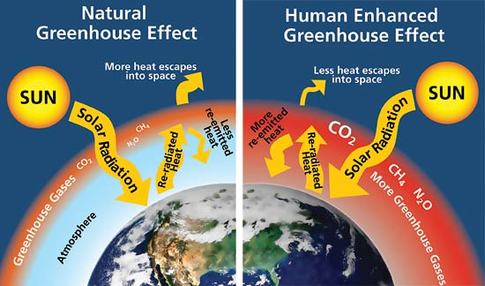In the vibrant tapestry of contemporary entertainment, gaming has emerged as a dominant thread, captivating millions across the globe. However, beneath the exhilarating surface of high-definition graphics and immersive storylines lies a nuanced reality that warrants examination—one that reveals the hidden climate costs entwined with our digital escapades. Gaming, while often viewed as a harmless pastime, harbors a staggering environmental impact that beckons scrutiny. This exploration delves into the intricate relationship between gaming and climate change, encouraging a re-evaluation of our digital lives.
At first glance, the juxtaposition of gaming and climate change may seem convoluted. After all, the vibrant landscapes of virtual realms do not appear to possess the weight of carbon footprints. Yet, consider this: every pixel rendered requires energy. And as gamers across the globe engage in epic quests and multiplayer battles, the collective demand for electricity burgeons. Data centers, housing the servers that enable online play and storing vast libraries of games, operate tirelessly, consuming significant amounts of power, much of which is derived from fossil fuels.
The electricity consumption of gaming can be likened to a giant beast, awakening in the dark recesses of our homes. As we sit absorbed in our virtual adventures, this beast can voraciously consume energy, contributing to greenhouse gas emissions. According to various reports, the energy required to power gaming consoles, computers, and the infrastructure supporting online gaming is reminiscent of the energy consumption of entire countries. This fact transforms what many see as merely leisure into a formidable player on the climate stage.
The allure of gaming goes beyond individual play; it has fostered communities. Multiplayer games, with their expansive landscapes and complex narratives, create a unique cultural phenomenon. Yet, this community-oriented gaming often entails continuous online access, which further exacerbates the environmental toll. The perpetuation of a “always-on” culture promotes the need for constant connectivity, perpetuating energy waste and amplifying the carbon footprint associated with our gaming habits.
Among the cacophony of gaming, a clarion call for sustainability is emerging. The industry is beginning to recognize its role in the climate challenge. Some game developers are integrating climate-conscious narratives into their storytelling, using their platforms to raise awareness about environmental issues. With vivid immersive experiences, players can engage with themes of conservation and the effects of climate change, sowing the seeds of awareness amidst even the fiercest dragon battles.
Beyond narrative integration, significant changes are taking root in the gaming industry itself. A growing number of developers are pursuing energy-efficient alternatives and adopting sustainability-focused practices. Innovative technologies, such as cloud gaming, have surfaced as potential solutions. These technologies streamline data processing by reducing the need for personal hardware while improving energy efficiency in centralized data centers. As the industry bears the torch of innovation, it has the potential to redefine the parameters of environmentally friendly gaming.
Furthermore, the tools that support gaming—the consoles and PCs—are beginning to feel the impact of eco-conscious manufacturing practices. Leading companies are committing to reducing their carbon footprints by utilizing recycled materials, increasing energy efficiency, and setting clear sustainability goals. This shift in manufacturing reflects an understanding that their consumer base increasingly values eco-consciousness as much as gameplay quality.
Nevertheless, individual gamers play a crucial role in this transforming landscape. It’s imperative that gamers cultivate awareness of their habits. The practice of turning off consoles and PCs when not in use is an elementary yet effective way to reduce energy consumption. Moreover, opting for digital downloads over physical copies can minimize waste associated with packaging and distribution. In this digital age, every small action can precipitate broader change.
As we navigate through this digital realm, it is essential to remind ourselves that each session is not merely an escape but a crossroads where our choices intersect with the environment. By embracing a mindset attuned to sustainability, we can endeavor to reshape the gaming experience. Choosing to champion games that prioritize environmental themes, or supporting developers who advocate for greener practices, becomes imperative. It is an opportunity to turn our passion for gaming into an avenue for activism.
Moreover, as the landscape of gaming evolves, the dialogue around climate responsibility can expand beyond the confines of individual choices. Industry-wide collaborations can propel solutions to the forefront, where developers, gamers, and environmental advocates unite to address the climate challenge. Initiatives like carbon offset programs, community challenges to promote energy awareness, and partnerships between gaming companies and environmental organizations can usher in a new era where gaming not only entertains but also enlightens.
In contemplating the proverbial two sides of the digital coin—entertainment and environmental responsibility—a broader perspective emerges. Gaming’s green challenge represents an evolving narrative; one that intertwines the love for immersive experiences with the urgency of addressing climate impacts. The responsibility lies within the very fabric of gaming culture, and as we play our favorite titles, we must reflect on the implications of our engagement. The quest for climate awareness is as much a part of the gaming journey as the battles we fight and the treasures we earn.
Ultimately, understanding the climate impact of gaming allows for an enriched experience—one that acknowledges that within each level completed, each high score achieved, lies the potential to foster change. The digital landscapes we traverse are constructed not only from code but from our collective responsibility toward the planet we inhabit. As we embark on our next gaming quest, let us do so with an acute awareness of our environmental footprint, crafting a legacy within the virtual realms that echoes positively in the real world.







